Noble Rogues
How it all ended
But what about spies? Where are those spies promised at the beginning of the story?
At the end of his life, Chiune Sugihara didn’t hide that his main task when he arrived in Kaunas, Lithuania, was to gather as accurate information as possible about the movements of the new allies - the German and USSR armies - and to inform Japan about any new conflict as early as possible. His wife Yukiko remembered frequent sightseeing trips around Lithuania - while the women and children enjoyed the picnic, Sugihara would drive around the area. Hasn’t there been a shortage of young men in the fields? That would mean an impending mobilization. Are there any strangely wide ruts on the roads? That would mean military equipment being prepared.
Boleslovas, the adviser, was the employee of the Consulate, recommended to Sugihara by the Polish military attaché. The government of occupied Poland by the time had already moved to Britain, so Boleslovas and several other Poles were not only Polish spies but also Sugihara’s “eyes and ears” at the Japanese Consulate, because it wouldn’t have been easy for the only Japanese in Lithuania to walk around, ask questions and go unnoticed.

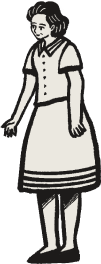
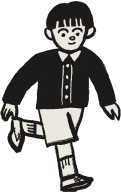
Gudze - and you wouldn’t guess it from his behavior in helping to write visas - was suspected as an agent of the German Gestapo, who disappeared as soon as the war began.
So we can assume that almost everyone in this story was a mole, a secret agent, a spy, a fraudster. Maybe except for... the maid. But we will never know that for sure.


What happened next? After the Sugihara family left Kaunas, Chiune served for a short time as the Japanese Consul in Czechoslovakia, less than a year later - as the Consul General in Königsberg, a year later, in 1942 - as the Consul General in Romania, where he lived until the end of World War II and together with his family in the autumn of 1945 entered the internment camp, where they spent the whole year. When finally in the spring of 1947 they returned to Japan, the Ministry of Foreign Affairs announced that Chiune Sugihara had been fired and removed from the diplomatic list. Has this happened because of thousands of illegally issued visas?
Those years were terrible not only because Sugihara lost his job. All over Japan food was scarce - food ration stamps provided only small amounts of food so the family survived only on rice and potatoes. And then the absolutely worst thing happened: Haruki, Chiune’s little son who was just seven years old, suddenly felt unwell and died overnight. Leukemia.
A year later, Setsuko - Yukiko’s sister, who had worked as a babysitter for Sugiharas for many years - got married, gave birth to a daughter, and died.
The joy was back only in 1951, January 8, when Sugiharas had their fourth son, Nobuki.

All those years they avoided mentioning the Kaunas events. Until 1968, when Chiune received a call from Mr. Nishri of the Embassy of Israel in Tokyo. He was one of the five Jews who once negotiated visas. Twenty eight years passed before Nishri finally found Chiune Sugihara, because while he lived in Kaunas, he introduced himself by the name Senpo - easier to pronounce than Chiune (at least for non-Japanese people).
In August of the same year, an article was published in a Japanese newspaper - “The Savior of 4,000 Jewish Refugees.” In 1969, Chiune Sugihara was invited to Israel by Zorach Warhaftig, who once negotiated visas and now was the minister of religion. Apparently, hundreds of survivors still kept the visas they once received from Chiune as a most precious thing, a relic.
In 1976 Chiune, who mostly worked in Moscow, retired. His heart was weak. So when in 1984 trees were planted on the hill of Bet Shemesh in his honor, only his son Nobuki, who studied at Hebrew University, attended the ceremony. They planned to plant sakuras, but Japanese cypresses were better suited to the climate. Anyway, Sugi - the name of the tree in Japanese - sounds like the first syllable of Sugihara’s surname.
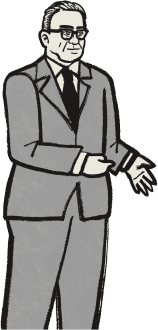
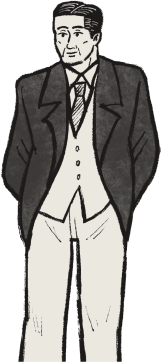
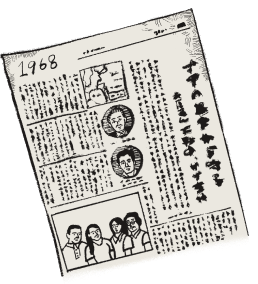
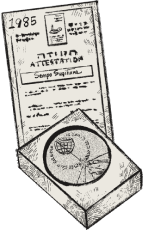

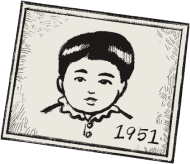
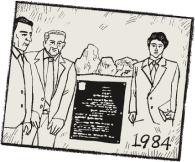
In 1985, Chiune Sugihara was awarded the title of Righteous Among the Nations, the Yad Vashem Award: an honor given by the State of Israel to the citizens of other countries who rescued Holocaust victims. Chiune is the only Japanese to receive such an honorable title.
In 1986, July 31, at the age of 86, Chiune Sugihara died.

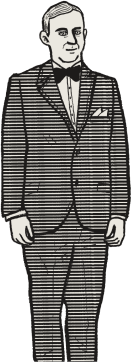

For Jan Zwartendijk, things turned a little less happy. He never told anyone about the events in Lithuania. Leaving Kaunas, he burned all the lists of the visas he issued. In 1964, he received a strict reprimand - instead of award - from the Dutch authorities for counterfeiting visas. Jan Zwartendijk never found out how many Jewish lives he had saved. Only on 15 September, 1976, a letter came from Israel to Eindhoven stating that 95 percent of the Jews he saved - 2132 people - had survived the war. The saddest thing is that Jan Zwartendijk died on September 14 of that same year. The good news came one day too late.
In 2000, an asteroid was named after Sugihara – “Asteroid 25893 Sugihara”.